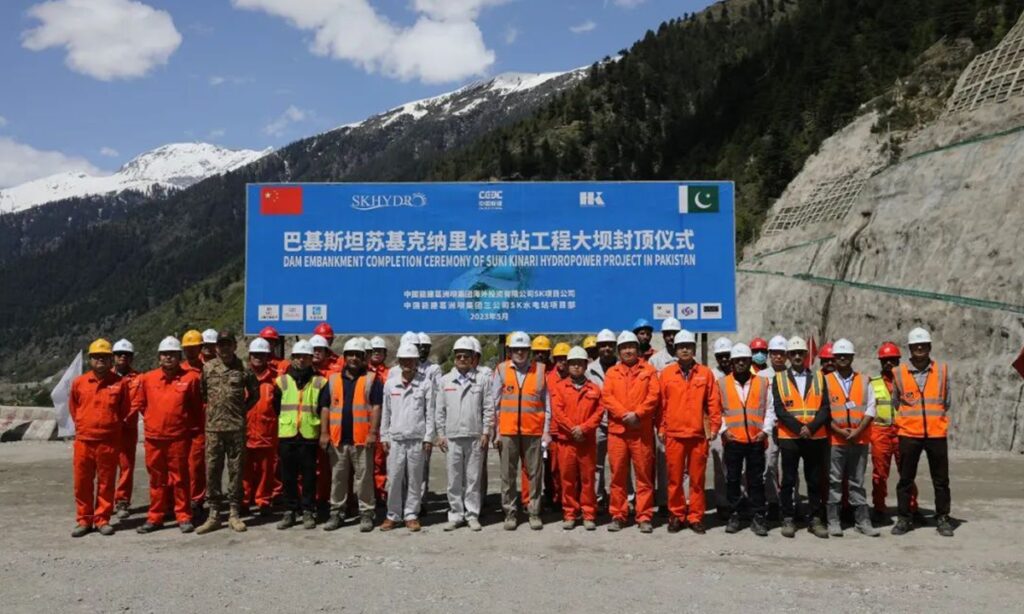Chinese Nationals Withdraw Petition After Alleged Harassment

In a dramatic twist that unfolded just weeks ago, six Chinese citizens who had initially filed a petition before the Sindh High Court (SHC) against alleged police harassment in Karachi took a step back and sought to withdraw their complaint.
The legal proceedings had garnered significant attention, adding further strain to the already sensitive relationship between Pakistan and China.
On January 24, the SHC had issued notices to several key government bodies, including the Ministry of Foreign Affairs, the Chinese Embassy in Pakistan, and various provincial law enforcement agencies, following a petition filed by four Chinese men—Xu Hui, Zhang Lichun, Zeng Fanxiong, Liuhaiguang—and two women, Deng Huan Yang and Zhita. The petitioners claimed they had faced repeated harassment by the Sindh police over a period of six to seven months. According to their allegations, the police unjustly restricted their movements, detained them without cause, and even demanded bribes, all of which they said were an infringement on their fundamental rights, guaranteed by both international law and Pakistan’s Constitution.
These claims quickly made headlines, sparking outrage and controversy. The Sindh Home Minister ordered an immediate investigation into the accusations, but there was a twist when he later argued that the petition itself was not valid, as the petitioners had not followed the correct legal protocol.
Despite this setback, the petitioners, through their lawyer Peer Rehman Mehsud, filed an application on January 28 requesting the withdrawal of their petition. The application cited assurances from senior government officials who had approached the petitioners and promised to address their grievances in accordance with the law. The petitioners, reportedly satisfied with these assurances, no longer wished to pursue the matter further, although they did reserve the right to take legal action in the future should the need arise.
“After the order dated January 24, 2025, we were approached by the authorities and assured that our concerns would be addressed properly,” the application stated. “Having been satisfied with the steps taken, we wish to withdraw the petition. However, we reserve our rights for any future legal action if necessary.”
While the withdrawal of the petition seemed to resolve the immediate tension, the underlying issues seem far from settled. The allegations had drawn attention to a broader problem: the treatment of Chinese nationals in Pakistan, especially in the context of the $60 billion China-Pakistan Economic Corridor (CPEC) project. CPEC had entered its second phase, with major investments flowing into infrastructure, energy, and industrial projects across the country. However, as the project advanced, Chinese citizens working on it had increasingly become targets of harassment, threats, and even attacks, particularly from militant groups such as the Balochistan Liberation Army (BLA).
The petitioners had also claimed that police were taking bribes to allow them to leave their homes and even sealed industrial units belonging to other Chinese nationals without prior notice under the guise of “security concerns.” Additionally, they described how their arrival at Karachi’s airport had become an ordeal, with long waiting times before being allowed to leave for their residences in bulletproof vehicles, at significant personal cost.
Sindh’s police chief, Ghulam Nabi Memon, defended the security measures, noting that the BLA and other extremist groups had targeted Chinese nationals in Pakistan in the past. He argued that the additional security precautions, including bulletproof vehicles and tight surveillance, were necessary to protect the lives of Chinese workers involved in the CPEC projects. However, he also acknowledged that certain Chinese nationals had expressed frustration with the restrictions on their movement, which were compounded by the unwillingness of local sponsors to bear the costs associated with their protection.
This series of events left both countries grappling with the delicate balance between ensuring security and maintaining the trust of foreign investors. For Pakistan, this was not just a matter of policing—it was a matter of national importance. The CPEC was seen as a cornerstone of Pakistan’s economic future, a critical project that required stable relations with China, its largest investor and partner. Any setbacks or disputes, however small, had the potential to derail progress and create long-lasting diplomatic rifts.
While the withdrawal of the petition may have temporarily quelled the tension, the incident underscored the fragility of the situation. China had invested billions of dollars into CPEC, and any security issues or legal obstacles faced by its nationals could have consequences for the project. The Pakistani government, while addressing the immediate concerns, now faced the difficult task of ensuring that Chinese investors felt safe and respected while operating within Pakistan.
As the second phase of CPEC moves forward, both countries will need to work carefully to navigate these sensitive issues—whether they concern police misconduct, security, or the safety of foreign nationals—in order to ensure that their partnership remains intact and continues to thrive. – ER Report
